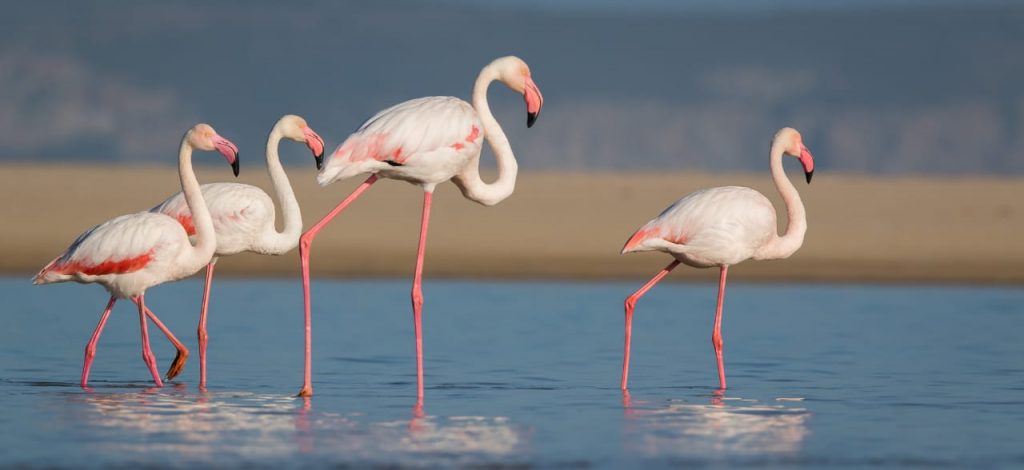

Greater flamingoes, with their characteristic colour, have been turning the picturesque Garden Route town pink during the lockdown, giving birdwatchers something to get excited about.
Though the remarkable birds have occasionally been seen in Plett since the early 1900s, the lagoon was lucky to have two or three and birders could sometimes find a pair up the Bitou River during the migratory season.
Plett has seen the numbers of these birds soar in recent years. Greater flamingos can grow up to 1.5m in height, have an average lifespan of 60 years, and have identifiable pink feathers with black-tipped wings.
They rarely breed in South Africa as their preferred breeding grounds include Sua Pan in Botswana and Etosha Pan in Namibia.
Plett locals are rather protective of their special visitors and understandably get very excited when there is roosting and hatching of chicks.
The birds appear comfortable in their new environment and, while visitors are encouraged to visit, they are urged not to disturb or disrupt the birds by getting too close or allowing dogs too close to them, especially without a lead.
Plett Tourism media spokesperson Patty Butterworth says the birds’ presence is a testament to the conservation efforts of the Bitou Wetlands and surrounding birding areas.

It’s possible less human activity and commercial fishing due to the lockdown that began in March have created an opportunity for better foraging conditions for the flamingoes in the lagoon and river estuaries.
“The lockdown has given these birds peace for roosting, little to no disturbance and overall an encouraging habitat,” Butterworth says.
“There seems to be an undisturbed formation of planktons, algae and other micro-formations which provides food for flamingoes and other wetland birds.”